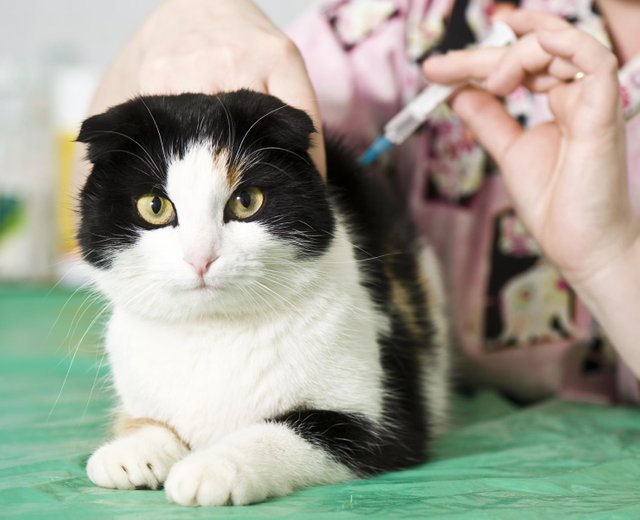Vaccinating your cat: why, when and what to protect?
Prevention is better than cure. An adage that also applies to your companion to your cat because by vaccinating it, you will protect it from the most common viral diseases. Diseases often very contagious, with very serious health effects, and sometimes even causing the death of the animal.

When to vaccinate her cat?
A cat should be vaccinated for the first time immediately after weaning, from age 2 months, since it is no longer protected by the antibodies transmitted by the mother during pregnancy and lactation. This primary vaccination (typhus, coryza, and possibly leucosis) was followed, one month later, by a booster and by vaccination against rabies. To ensure complete immunity throughout the life of the animal, annual recalls will be required. Know that the older the cat, the more sensitive to diseases so do not neglect them!
Against which diseases vaccinate her cat?
It is possible to have his cat vaccinated against the five most common viral diseases in the cat: typhus, coryza, leucosis, chlamydia, rabies. But not all vaccines are necessary. Take advice from your veterinarian who will give you the vaccine protocol to follow according to its origins, its way of life, its activities ...
Typhus: it causes a gastroenteritis causing loss of appetite, fever, vomiting, diarrhea and severe dehydration in the cat. This very contagious disease often leads to death, especially in the kitten. Since the virus does not respond effectively to drugs, only vaccination can fight it.
Coryza: it is a disease that affects the entire respiratory tract of the cat. Its symptoms are similar to those of a cold: fever, runny nose, inflammation of the tongue, infectious conjunctivitis, lack of appetite ... It is rarely fatal, but it can be disabling for the animal. And if it is not treated in time, it can still cause death.
Typhus and coryza are two extremely resistant, contagious diseases that are long-lasting in the environment and can be transported by humans. It is therefore important to have your cat vaccinated against both, even if it only lives indoors.leucosis: this is a viral disease caused by infection with the feline leukemogen virus, called FeLV (not to be confused with what is called "cat AIDS"). It is transmitted by natural means (blood, sexual pathway, saliva, urine, tears) and only between cats (scratches, licking, bites, protrusions). It is therefore by no means transmissible to man. The symptoms are very varied and can be manifested by weight loss, fever, digestive or respiratory disorders, anemia, the appearance of ganglia, tumors in the kidneys ... Some cats can be carriers of the virus For years before presenting the first symptoms.
The vaccine against leucosis is recommended for cats with access to the outside, even if it is occasional.Chlamydia: It is a chronic conjunctivitis, which generally affects only one of the eyes, and which leads to a permanent flow, redness and itching. While it is very difficult to treat this infection definitively, it is not fatal. However, we must remain vigilant because, even if the conjunctivitis seems cured, the cat can remain contagious. It mainly affects cats that have lived in community (breeding, shelters ...).
The vaccine against chlamydia is usually reserved for exposure or rearing cats.Rabies: it is certainly the most well-known disease because of its possible transmission to man and because of its seriousness, because it is constantly mortal. The virus is generally transmitted by biting an animal carrying the virus (dogs, cats, ferrets, foxes, bats ...). The incubation period may be several weeks depending on the species (15 to 30 days in the cat). Any bite must therefore be taken seriously, even if the animal appears healthy. The paralytic form, the most common in cats, results in paralysis of the jaw muscles which causes difficulty opening mouth and abundant saliva. Death occurs systematically in a few days. The so-called "furious" form, in addition to these symptoms, leads to a change in behavior (aggressiveness, excitement, meowing ...). This form is more dazzling with a death within 4 to 5 days after the onset of the first symptoms. In all cases, quickly consult a veterinarian who alone can establish a reliable diagnosis.
Rabies is disappearing from French territory thanks to the vast vaccination campaigns carried out in recent years, but it remains a threat not to be neglected. Therefore, it is strongly advisable to vaccinate your cat against this disease, even if you do not live in an exposed area.

To know
Vaccination can only be carried out on a healthy animal and dewormed. In some cases extremely rare, an allergic reaction can occur (edema, haemorrhagic vomiting, ...).